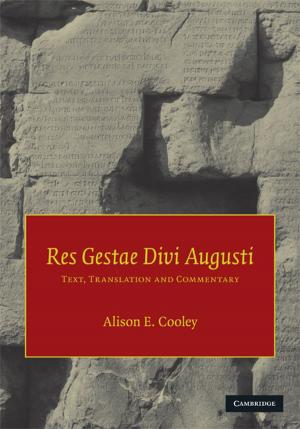Bombing the People
Giulio Douhet and the Foundations of Air-Power Strategy, 1884–1939
Nonfiction, History, Modern, Military| Author: | Thomas Hippler | ISBN: | 9781107289864 |
| Publisher: | Cambridge University Press | Publication: | August 14, 2013 |
| Imprint: | Cambridge University Press | Language: | English |
| Author: | Thomas Hippler |
| ISBN: | 9781107289864 |
| Publisher: | Cambridge University Press |
| Publication: | August 14, 2013 |
| Imprint: | Cambridge University Press |
| Language: | English |
Giulio Douhet is generally considered the world's most important air-power theorist and this book offers the first comprehensive account of his air-power concepts. It ranges from 1884 when an air service was first implemented within the Italian military to the outbreak of the Second World War, and explores the evolution and dissemination of Douhet's ideas in an international context. It examines the impact of the Libyan war, the First World War and Ethiopian war on the development of Italian air-power strategy. It also addresses the issue of Douhet's advocacy of strategic bombing, exploring why it was that Douhet became an advocate of city bombing; the meaning and the limits of his core concept of 'command of the air'; and the mutual impact of air power, military and naval thought. It also takes into account alternatives to Douhetism such as the theories developed by Amedeo Mecozzi and others.
Giulio Douhet is generally considered the world's most important air-power theorist and this book offers the first comprehensive account of his air-power concepts. It ranges from 1884 when an air service was first implemented within the Italian military to the outbreak of the Second World War, and explores the evolution and dissemination of Douhet's ideas in an international context. It examines the impact of the Libyan war, the First World War and Ethiopian war on the development of Italian air-power strategy. It also addresses the issue of Douhet's advocacy of strategic bombing, exploring why it was that Douhet became an advocate of city bombing; the meaning and the limits of his core concept of 'command of the air'; and the mutual impact of air power, military and naval thought. It also takes into account alternatives to Douhetism such as the theories developed by Amedeo Mecozzi and others.















